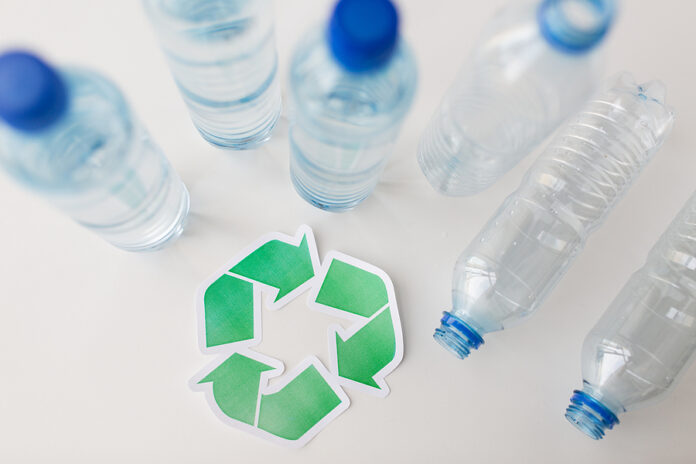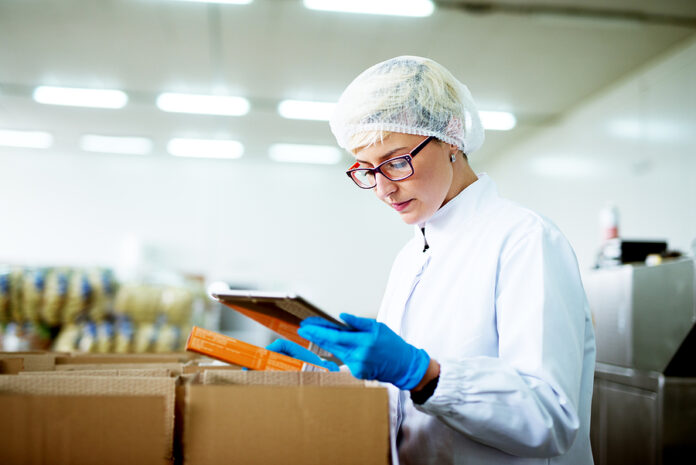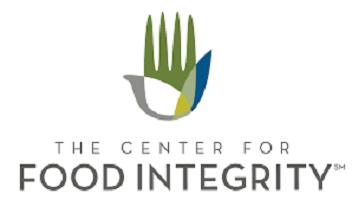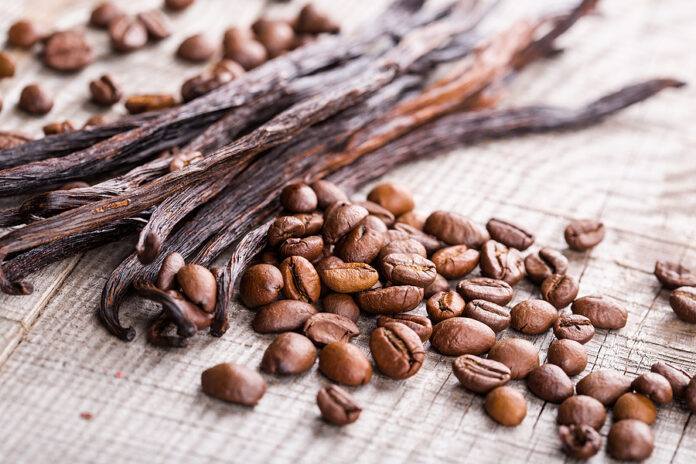
By Sridevi Narayan-Sarathy, technical director of sustainable packaging and senior research fellow, PepsiCo; and Yael Vodovotz, professor and director, Center for Advancement of Food Science and Technology, The Ohio State University
Plastic packaging has played a crucial role in ensuring consumers have affordable access to food and drinks. It’s a durable material that protects food from perishing and allows for mass production and distribution. Petroleum-based plastic has proven a boon to the food and beverage industry and to consumers everywhere, but it is also environmentally unsustainable in the long term. Globally, governments and companies are seeking new ways to reduce the accumulation of single-use plastics and other packaging, which so often ends up in landfills and the ocean. Consumers also support the drive to reduce plastic waste; a 2023 McKinsey study showed they are willing to pay more for sustainably packaged products.
Recycling is seen as key to sustainability efforts, but two factors limit its long-term usefulness in building a more sustainable economy. First, true circularity – the reuse of existing materials rather than the disposal and production of more – is actually in decline. In 2023, the economy was 7.2% circular, down from 9.1% in 2018 (this statistic includes single-use packaging, among other materials). Second, current methods for recycling multi-layered, mixed-materials waste are complex, costly, and energy-inefficient. This all points to one conclusion for the food and beverage industry: new, non-petroleum-based materials are needed to increase circularity and reduce the environmental impact of single-use plastics.
Making plastic from biobased materials that bio-degrade rather than being permanently present in the environment could, over time, make the consumer packaging sector sustainable without sacrificing quality or durability of the product. If the new material is also carbon neutral, it would help close the loop in this important sector. For example, bio-based plastics from polyhydroxyalkanoate (PHA), polyhydroxybutyrate (PHB), and polylactic acid (PLA) show promise as replacements for petroleum-based plastics. But we’re not there yet. Research into biodegradable plastics (in defined conditions) has been underway since the 1990s, but limited functionality, scalability, and economic feasibility of production have restricted the use of these polymers. Meanwhile, the increasing demand for prepared meals and on-the-go foods has seen food packaging grow into the largest user of petroleum-based plastics in the plastic packaging industry.
But seemingly unsurmountable challenges in the history of science and engineering have suddenly collapsed as new research led to breakthroughs that transformed the way we live. For the tide to turn in consumer packaging, we need efforts across multiple fronts in engineering and manufacturing, plus collaboration between researchers in industry, academia, and the public sector, to coalesce around key directions for research. The latter was the task taken on by 55 researchers, industry leaders, policymakers, and other stakeholders at a July 25-26, 2023, visioning event convened by the Engineering Research Visioning Alliance (ERVA), an initiative backed by the National Science Foundation (NSF). The participants (including the two authors of this article) discussed grand challenges and identified engineering research priorities for building a more sustainable economy, including consumer packaging. The subsequent report, “Engineering Materials for a Sustainable Future,” delves into the three priority research areas:
- Design: The path to sustainability begins with identifying materials that can replace petroleum-based plastics without compromising on cost, performance, efficiency, or durability. We need research into known, existing materials that could serve as a replacement, as well as developmental research to create new ones. Critically, new packaging design should incorporate both sustainable feedstock selection as well as end-of-use alternatives.
- Scale-up and manufacturing: Scaling up sustainable packaging material manufacturing involves increasing production to meet demand while maintaining these sustainable practices. To accomplish this, R&D investment is needed to improve the efficiency and effectiveness of sustainable production methods. This includes engineering more efficient processes to recycle and reuse materials, developing more reliable and sustainable supply chains, and optimizing collection, sortation, and production processes to minimize waste and energy use. Scaling up the collection, transportation and sorting of biodegradable plastics for waste management will also require research to accelerate the transition from “cradle-to-grave” – the use and disposal of materials – “to cradle-to-cradle” – a fully circular process of use.
- End-of-use and reuse: Research to improve materials handling and disposal at the end of useful life — in a way that minimizes waste and maximizes its value — can help mitigate the negative effects of solid waste. In the case of flexible packaging, collection and sorting at the end of use is the biggest challenge today due to infrastructure limitations and a lack of valuable end markets for mechanically recycled packages. More research into sorting technologies and enhanced recycling methodologies is needed to overcome these challenges. Sustainability and circularity begin with lifecycle analysis in the design phase that considers all aspects, including use of sustainable feedstocks, energy use during manufacturing and transportation, and end-of-life scenarios. Sustainable end-of-use and reuse may involve engineering materials that are easy to recycle or using food waste as feedstock in material development. Engineering also plays a role in designing products that can be readily disassembled and repurposed.
All players in the food and beverage industry, from raw materials vendors to integrators to recycling, are challenged with responsible R&D across these three key areas. There is much to gain through collaboration instead of “going it alone.” The purpose of the ERVA event and its key findings report was to facilitate cross-industry, cross-disciplinary, and cross-sector sharing of information, data, and ideas. To achieve the necessary breakthroughs over the next 5 to 10, 10 to 20, and 20+ timespans discussed in the report, this should be an “all-hands-on-deck” effort to achieve maximum societal impact. Our industry can and must play a central role in facilitating the engineering research and collaboration required to make sustainable packaging a reality.
 Yael Vodovotz is a professor and director of the Center for Advancement of Food Science and Technology at The Ohio State University. Vodovotz earned her doctorate from the University of Massachusetts in food science followed by a postdoctoral position at NASA as part of a joint effort between University of Houston and NASA-Johnson Space Center where she worked on various aspects of the Advanced Life Support food system as well as teaching at the University of Houston. Her NASA work continued as an assistant professor at Baylor Medical School, part of the National Space Biomedical Research Institute. She joined the faculty of The Ohio State University in 2000 and became director for the Center for Advanced Functional Foods, Research and Entrepreneurship in 2016. Vodovotz and has been working on physio-chemical and molecular properties of foods and bioplastics and has over 100 publications. She has been working with an interdisciplinary team of researchers from Horticulture and Plant Science and Chemical and Biomolecular Engineering to advance the field of bioplastics for packaging applications and is team lead of Alternative Matters. Key to their approach is to translate innovative research to the commercial market through industry collaborations.
Yael Vodovotz is a professor and director of the Center for Advancement of Food Science and Technology at The Ohio State University. Vodovotz earned her doctorate from the University of Massachusetts in food science followed by a postdoctoral position at NASA as part of a joint effort between University of Houston and NASA-Johnson Space Center where she worked on various aspects of the Advanced Life Support food system as well as teaching at the University of Houston. Her NASA work continued as an assistant professor at Baylor Medical School, part of the National Space Biomedical Research Institute. She joined the faculty of The Ohio State University in 2000 and became director for the Center for Advanced Functional Foods, Research and Entrepreneurship in 2016. Vodovotz and has been working on physio-chemical and molecular properties of foods and bioplastics and has over 100 publications. She has been working with an interdisciplinary team of researchers from Horticulture and Plant Science and Chemical and Biomolecular Engineering to advance the field of bioplastics for packaging applications and is team lead of Alternative Matters. Key to their approach is to translate innovative research to the commercial market through industry collaborations.
 Sri Narayan-Sarathy is the technical director of sustainable packaging and a senior research fellow at PepsiCo. Sri earned her master’s degree in chemistry and master’s of technology degree in polymer science and technology from Indian Institutes of Chennai and Delhi respectively. She earned her doctorate in polymer science and engineering from the University of Massachusetts at Amherst. Prior to joining PepsiCo in 2010, Narayan-Sarathy was technology manager/principal scientist at Ashland Performance Materials. At PepsiCo, she leverages her extensive experience with different polymer chemistries to identify and develop bio-based materials for sustainable flexible packaging with good end-of-life. She has several patents and publications to her credit. Narayan-Sarathy also has an adjunct faculty appointment in the Department of Grain Sciences at Kansas State University and serves on the board of the Biodegradable Products Institute (BPI).
Sri Narayan-Sarathy is the technical director of sustainable packaging and a senior research fellow at PepsiCo. Sri earned her master’s degree in chemistry and master’s of technology degree in polymer science and technology from Indian Institutes of Chennai and Delhi respectively. She earned her doctorate in polymer science and engineering from the University of Massachusetts at Amherst. Prior to joining PepsiCo in 2010, Narayan-Sarathy was technology manager/principal scientist at Ashland Performance Materials. At PepsiCo, she leverages her extensive experience with different polymer chemistries to identify and develop bio-based materials for sustainable flexible packaging with good end-of-life. She has several patents and publications to her credit. Narayan-Sarathy also has an adjunct faculty appointment in the Department of Grain Sciences at Kansas State University and serves on the board of the Biodegradable Products Institute (BPI).

Credit: Source link






![[Guide] 5 Reasons Your Business Does or Doesn’t need an ESOP [Guide] 5 Reasons Your Business Does or Doesn’t need an ESOP](https://foodindustryexecutive.com/wp-content/uploads/2024/08/Food-Industry-Executive-696x457.png)








